People
Who Was the Most Influential Curator of the Decade? Dozens of Art-World Experts Told Us Their Judgment, and Why
Okwui Enwezor was by far the most influential curator of the 2010s, according to our survey.
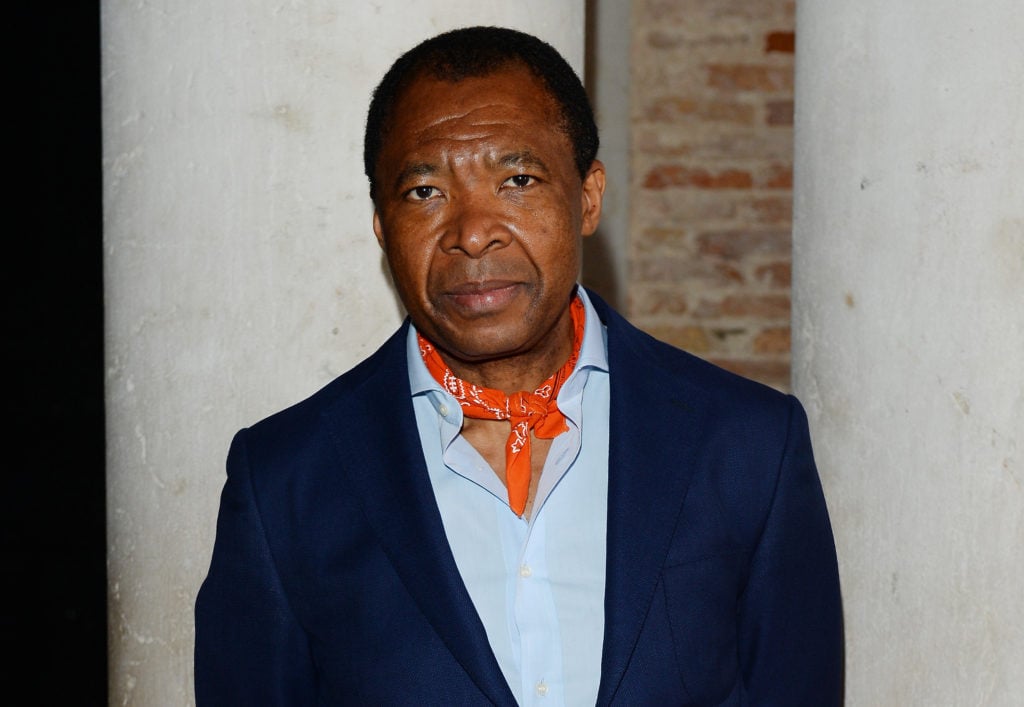
Okwui Enwezor was by far the most influential curator of the 2010s, according to our survey.

Artnet News

As the turbulent and event-filled 2010s come to an end, we asked more than 100 artists, curators, gallerists, and other art-world figures to tell us their picks of the most influential art and art-makers of the decade. Here is a selection of their responses.
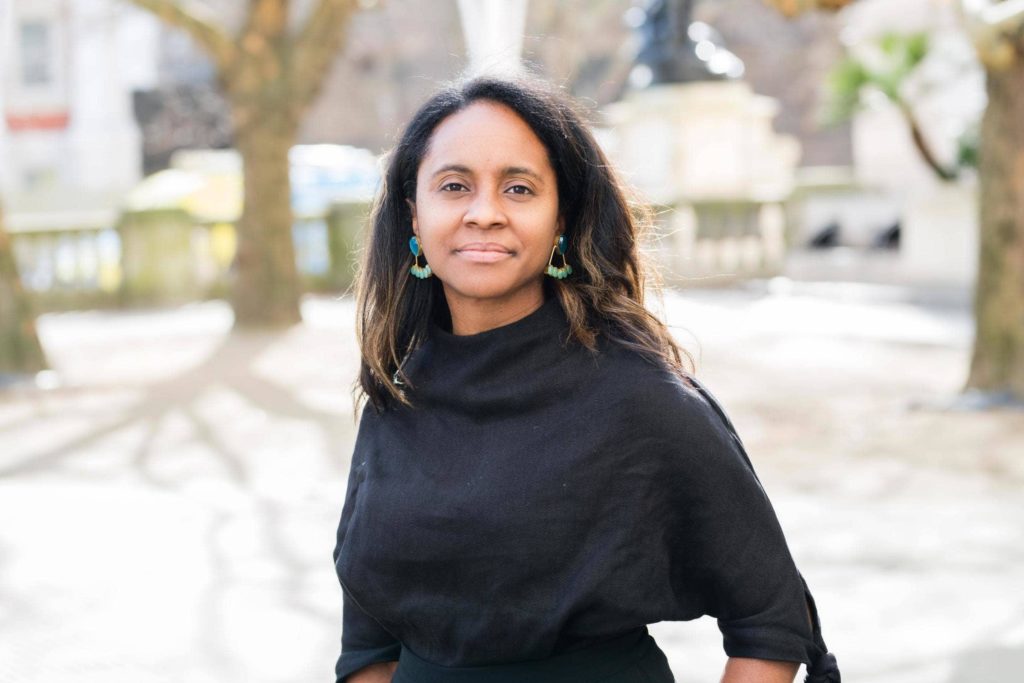
Zoe Whitley. Photo by James Gifford-Mead.
Zoe Whitley, who was recently named senior curator at the Hayward Gallery in London. She curated “Soul of a Nation,” which traveled from the Tate in London to New York and LA. Known for her risk-taking programming and commitment to spotlighting a diverse range of artists, Whitley will, without a doubt, organize impactful exhibitions and programs in the near future.
—Isolde Brielmaier, curator, International Center for Photography
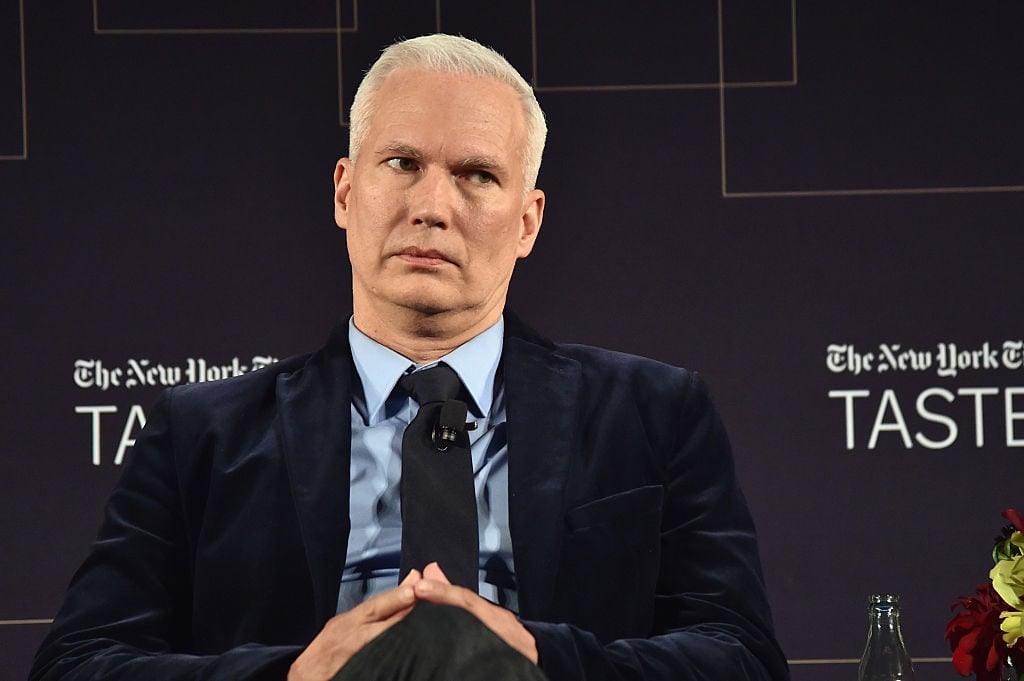
Klaus Biesenbach. Photo by Mike Coppola/Getty Images for New York Times.
Klaus Biesenbach. He’s clearly one of the most knowledgeable curators alive and a huge advocate for fusing cultures and genres in shows, bridging the east and west. More importantly, he supports and incubates young contemporary artists across nations, breaking down barriers.
—Adrian Cheng, founder, K11 Art Foundation
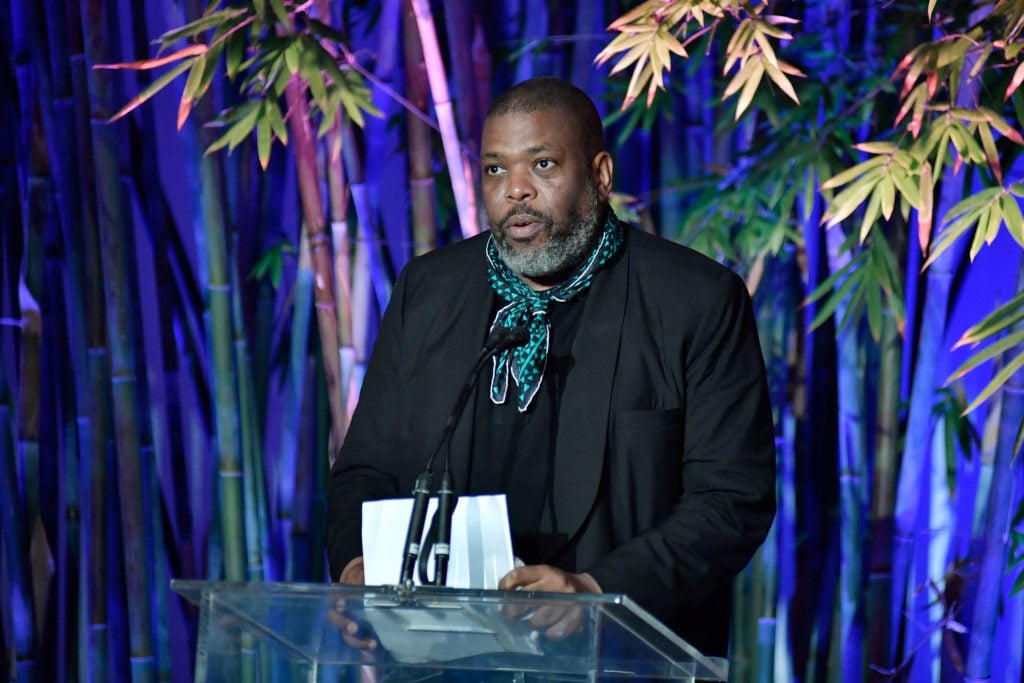
Hilton Als. Photo by Stefanie Keenan/Getty Images for Hammer Museum.
I know Hilton Als is not a curator in the traditional sense, but the artist-as-curator, or writer-as-curator, paradigm is really attractive to me because we get to see the curator’s personal proclivities and biography get beautifully tangled up with the art. In the best cases, like in “Alice Neel: Uptown” or “God Made My Face,” both of which Als curated at David Zwirner, we discovered that even art we already know and love can be made more special, more nuanced, when seen through a particular lens. I can’t think of any other presentation of Neel’s paintings that has had such a noticeable influence on the public perception of her work.
—Anna Glantz, artist
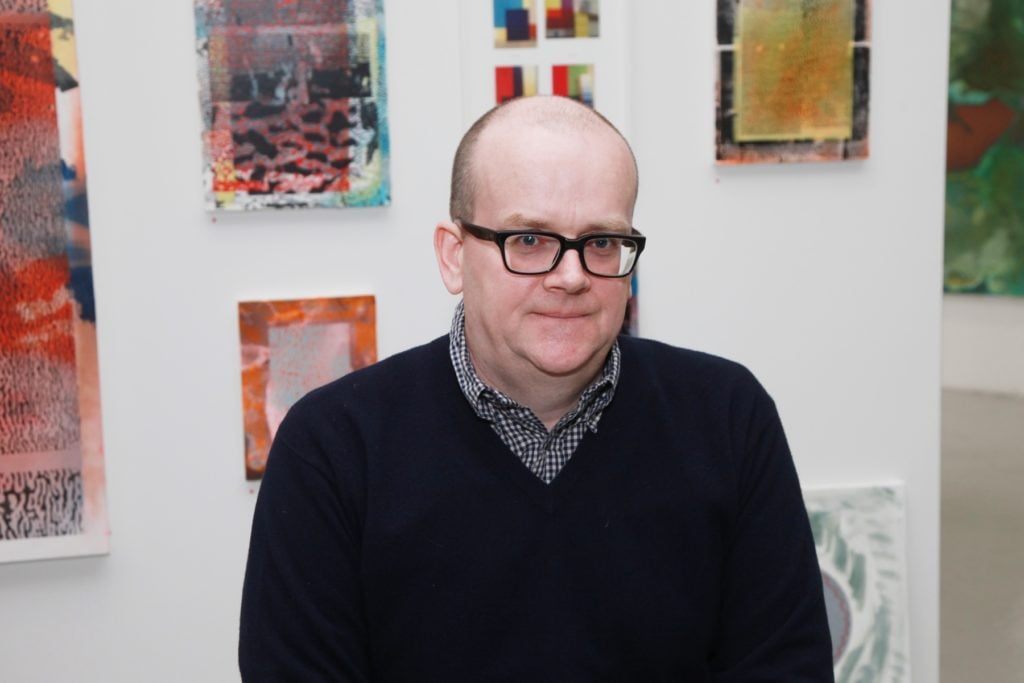
Matthew Higgs. Photo: J. Grassi/PMC, © Patrick McMullen.
Hands down, Matthew Higgs, who sees more than anyone, and has identified and spring-boarded so much talent through his work at White Columns.
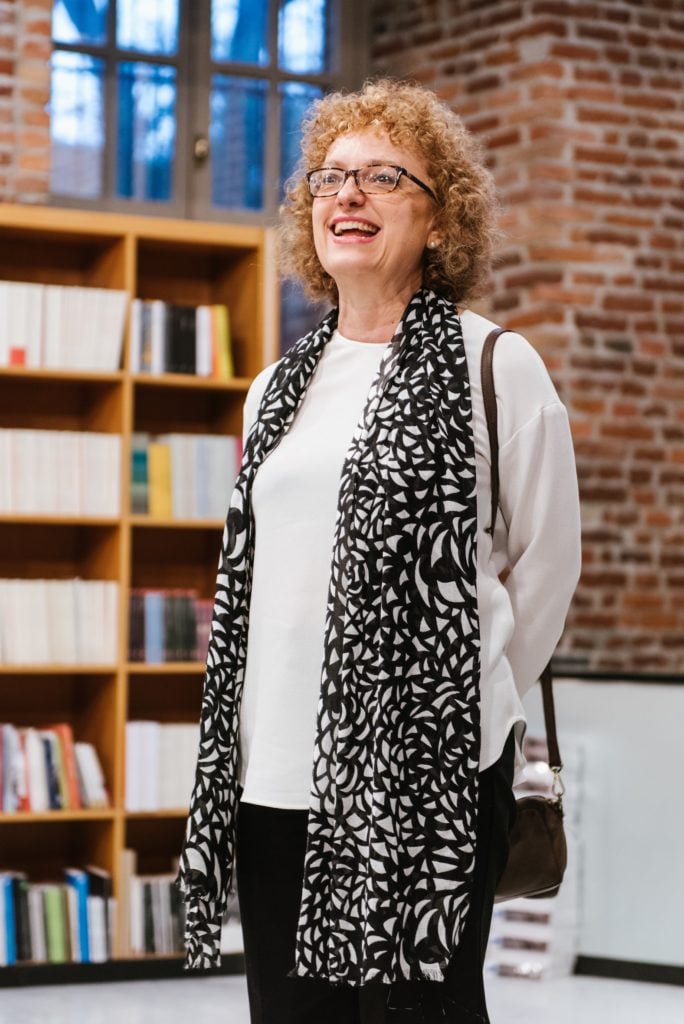
Carolyn Christov-Bakargiev. Photo by Andrea Guermani.
Carolyn Christov-Bakargiev, especially in curating Documenta in 2012. She expanded the intersection of art and other disciplines such as anthropology, politics, science, and music.
—Estrellita Brodsky, curator, collector, and philanthropist
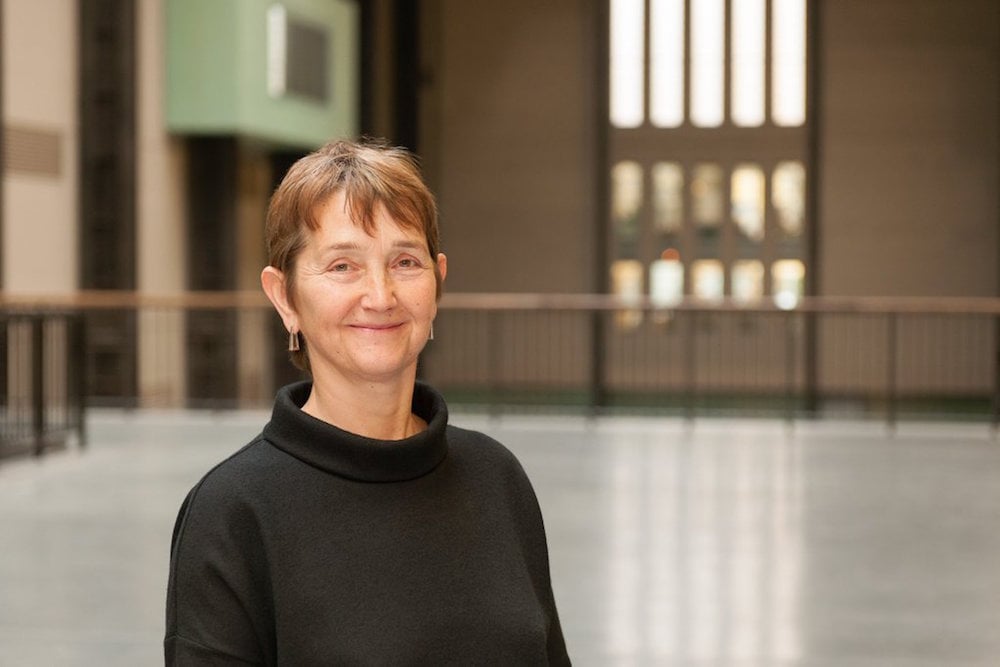
Frances Morris.
Frances Morris, the director of Tate Modern, not because her role is very visible or obvious at Tate Modern, but because, as its director, she helps to establish its program, which gives her an immense amount of authority in the field.
—Charles Saumarez Smith, chairman, Royal Drawing School
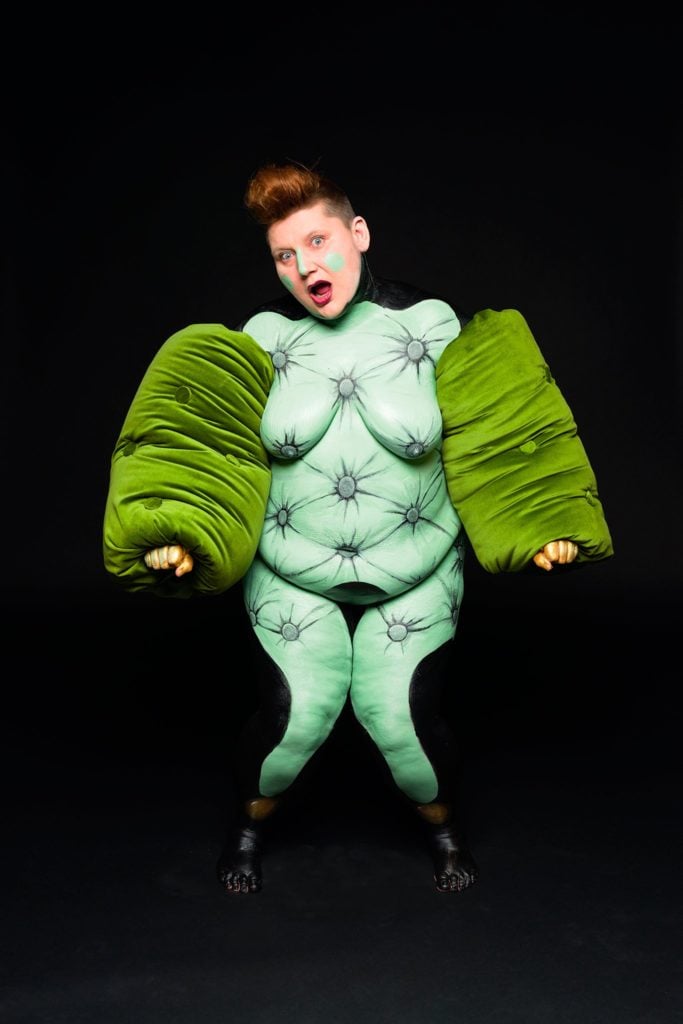
Jakob Lena Knebl, Chesterfield (2014). Courtesy of Georg Kargl Fine Arts.
Artist and curator Jakob Lena Knebl curated a fabulous show in 2017 based on works from the Mumok collection. Knebl has a unique way of dealing with art, creating almost tangible networks between interior design, modernist sculpture, textiles, performances, and paintings.
—Marc-Olivier Wahler, curator

Susanne Pfeffer. Courtesy of YouTube.
Susanne makes a new generation of artists from across the globe visible and keeps doing exhibitions that make me curious. She also shows how stuck all the curators of my generation are in exhausted formats or institutional elephantiasis.
—Daniel Birnbaum, former director, Moderna Museet
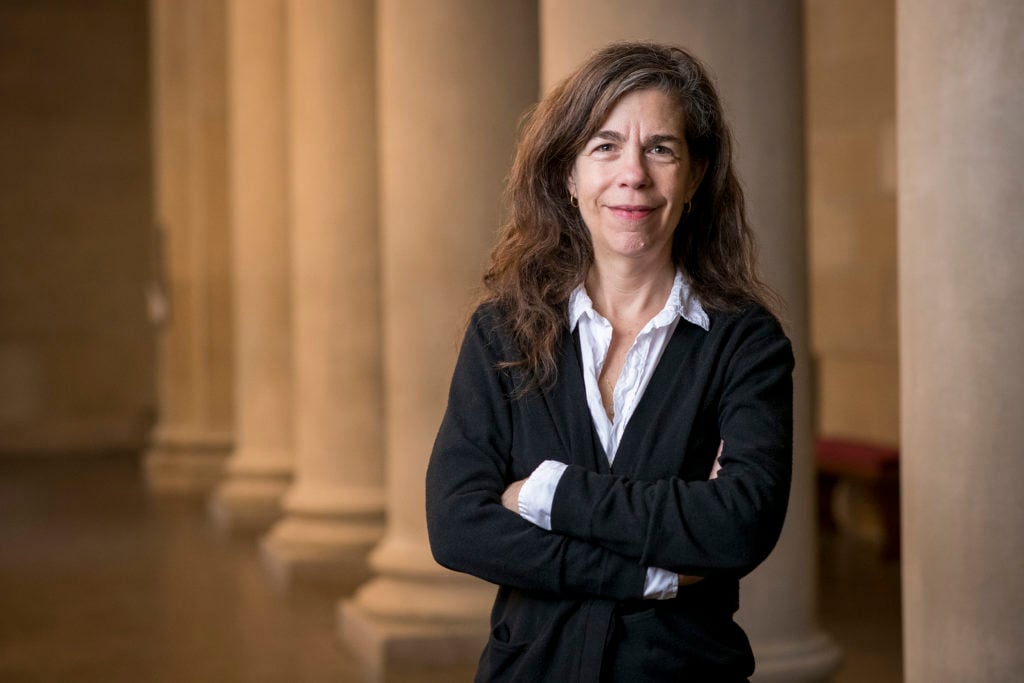
Katy Siegel. Image courtesy of Christopher Myers Photography.
From her groundbreaking examination of painting in New York in the 1970s, “High Times, Hard Times: New York Painting 1967–1975,” to her work alongside Okwui Enwezor on “Postwar,” Katy Siegel has merged a commitment to deep, searching scholarship with a drive towards unearthing new histories to render a more just and accurate history of art.
—Christopher Bedford, director, Baltimore Museum of Art
Katy Siegel and Chris Bedford. Between the Mark Bradford exhibition at the 2017 Venice Biennale and their efforts to redefine American art at the Baltimore Museum with Bedford’s daring choice to sell works in the permanent collection to purchase art by people who look like Baltimore’s demographics, Siegel and Bedford put provocations into play about the permeable line between inside and outside the museum.
—Bridget Cooks, professor, University of California, Irvine
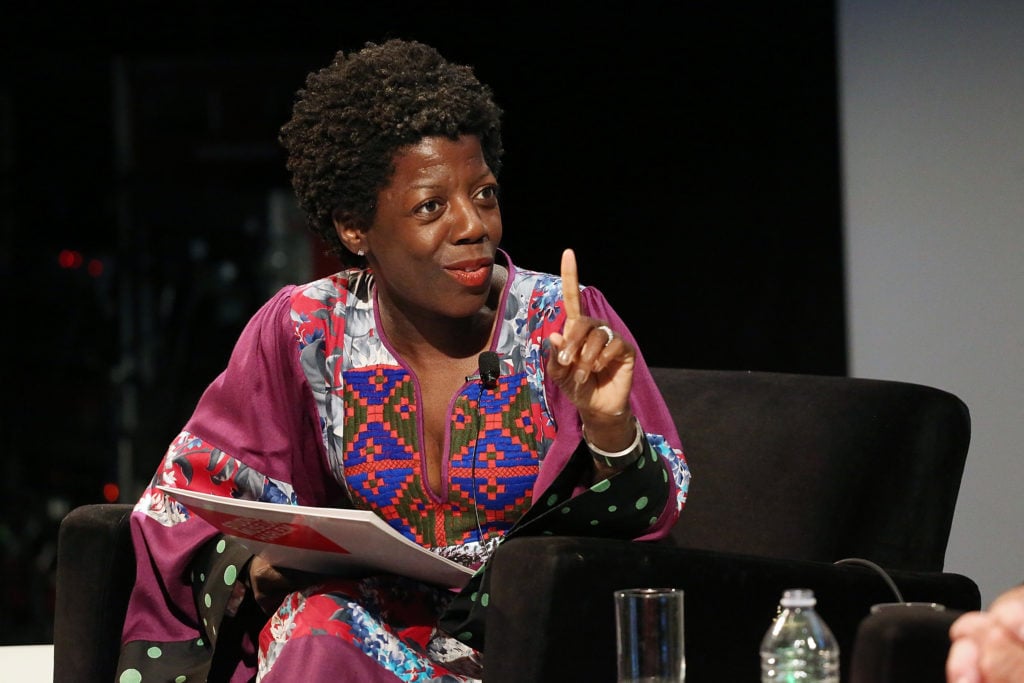
Thelma Golden. Photo by Mireya Acierto/Getty Images.
Thelma Golden, who has nurtured and supported a cadre of curators who have gone on to do important work with widespread influence across this country and beyond.
—Cara Starke, director, Pulitzer Arts Foundation
Thelma Golden for her leadership and dedication to reaching out beyond the art world.
—Manuela Wirth, cofounder, Hauser & Wirth
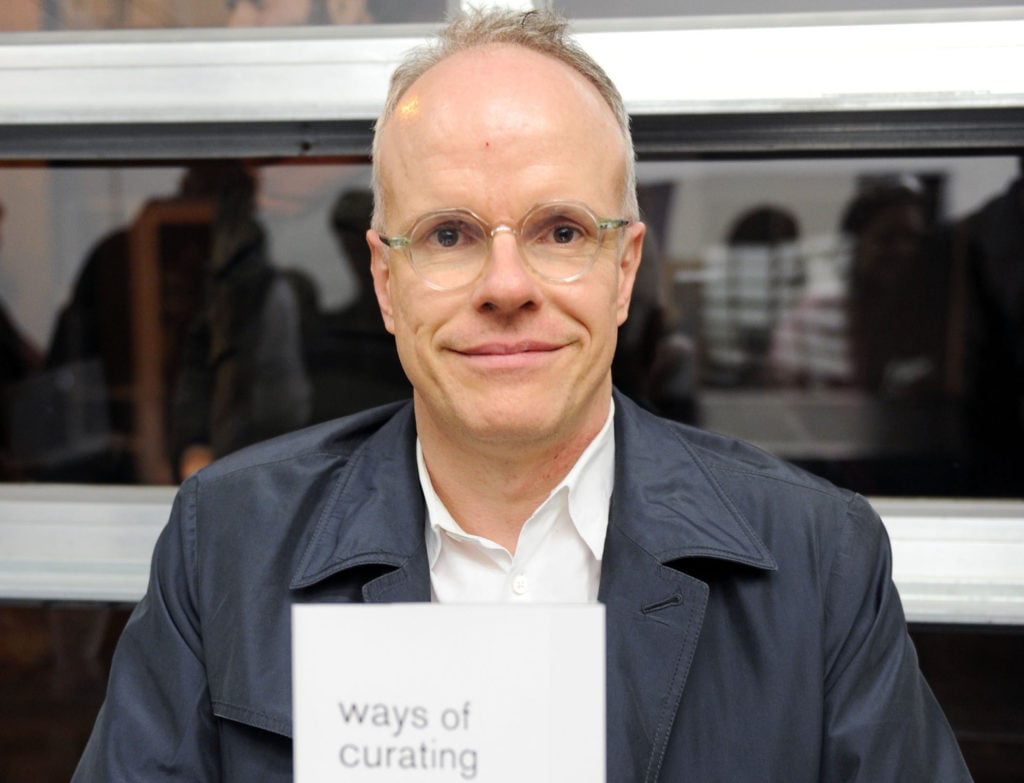
Hans Ulrich Obrist. Photo: Craig Barritt/Getty Images for Surface Magazine.
Hans Ulrich Obrist might be emblematic of how many roles a curator plays today: writer, editor, curator, etc. He is incredibly prolific, which seems unique, given that curators in past decades seemed more plotted and methodical.
—Jason Stopa, artist
Hans Ulrich Obrist is the most tireless, dedicated, and passionate curator I have ever met. Every waking moment of his life—he barely ever sleeps—is given over to artists. He offers his time, attention, ideas, and brand towards the goal of sharing what they most want to share.
—Alexander S. C. Rower, president, Calder Foundation
Hans Ulrich Obrist. His love of conversation and introductions between artists always surprise.
—Sarah Morris, artist
Hans Ulrich Orbist is a phenomenon, a titanic brain with an immense appetite for knowledge and an insatiable desire to embrace a multitude of disciplines. Through his eyes, it is possible to have access to the world that surrounds us, including, but by no means limited to, the arts.
—Julia Peyton-Jones, director, Thaddaeus Ropac Gallery

Bisi Silva. Courtesy of Wikimedia Commons.
Bisi Silva. The late Nigerian curator had an enduring impact on the creative scene on the continent. Not only did she establish the Centre for Contemporary Art in Lagos, she also founded Àsìkò in 2010, a radical arts education program that had nearly 200 individuals participating over its six editions in five cities on the continent. Seeing where and what these creatives have gone on to achieve has been incredible and is a testimony to Bisi’s resounding impact.
—Touria El Glaoui, founder, 1–54 Contemporary African Art Fair
The late Bisi Silva and the late Okwui Enwezor are constant inspirations, examples of curators who truly made a difference in our field and changed the rules and standards of the European- and the US-centered contemporary art world by rewiring critical theory and art, reconnecting global and local narratives, and creating networks and platforms across the world.
—Nina Zimmer, director, Zentrum Paul Klee
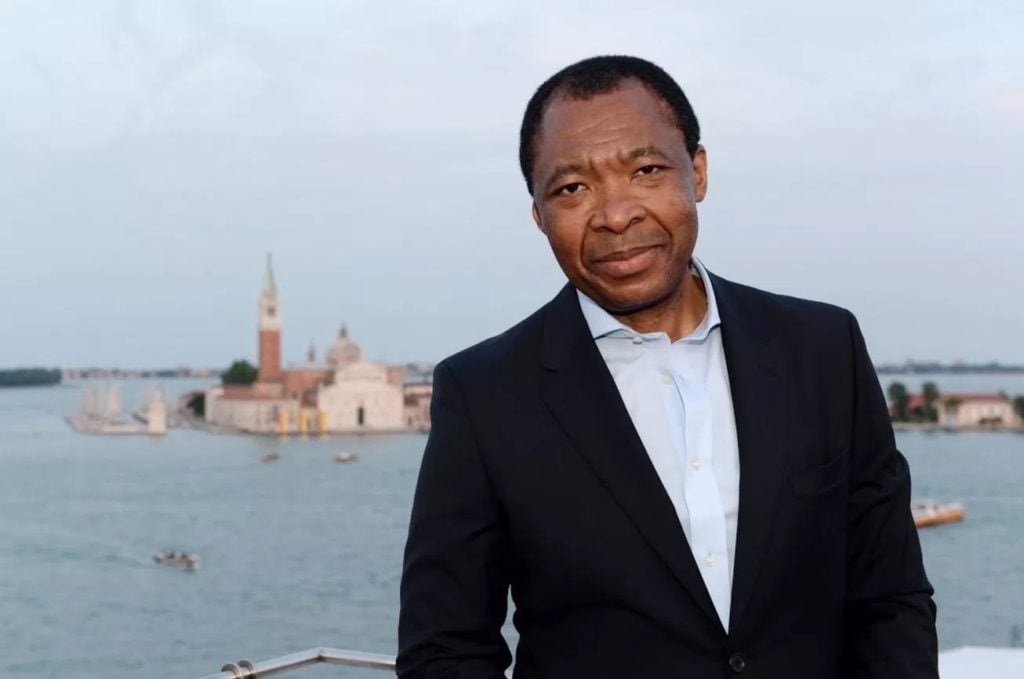
Okwui Enwezor. Courtesy of Giorgio Zucchiatti.
Okwui Enwezor. Without his efforts and his vision, we would all still be operating in a racist and Eurocentric art world.
—Coco Fusco, artist, writer, activist
The purpose of exhibitions is to write the future of art history. Over the past decade no curator has done this with greater intellectual power and warmth than Okwui Enwezor. Influence is all about the present and, although he may no longer be with us, Enwezor’s exhibitions without a doubt will keep on extending into the future.
—Lisa Le Feuvre, executive director, Holt/Smithson Foundation
I can’t think of any curator who has looked at more art from more places with such rigor and empathy than Okwui Enwezor. By doing so through platforms such as the 2015 Venice Biennale, he ensured that modern and contemporary art from beyond Europe and North America could no longer be excluded from serious discussions about the art of our times.
—Michael Brand, director, Art Gallery of New South Wales
The 2010s marked the close of the career of a curator who profoundly shaped international exhibition-making over three decades. Okwui’s 2015 Venice Biennale was the culmination of a lifelong change-agenda to rewrite the canons of art history.
—Olga Viso, former director, Walker Art Center
He has been influential for decades, of course, but his passing offered the opportunity to assess the far reach of his work, which dethroned Western European and Northern American narratives of art to make way for artists from all over the world, particularly those from the global south. His influence is everywhere—the new MoMA is just one example—and his spirit is alive in the work of many curators today, including Eungie Joo, Candice Hopkins, Mami Kataoka, and Gabi Ngcobo.
—Eva Respini, chief curator, Institute of Contemporary Art, Boston
The late Okwui Enwezor. An original thinker, he did much to reorient curatorial practice beyond a Euro-American axis. His Johannesburg Biennale in 1996 and his more recent Venice Biennale in 2015 heralded a new focus on identity politics, one that we are witnessing now.
—Melissa Chiu, director, Hirshhorn Museum and Sculpture Garden
No one has done more to shift art-historical thinking and curatorial practice towards a more comprehensive, complex, and nuanced global perspective than Okwui Enwezor.
—Alexis Lowry, curator, Dia Art Foundation
Enwezor’s large-scale exhibitions displaced western art from the center as he presented contemporary art juxtaposed with world history and cultural exchange.
—Salvador Salort-Pons, director, Detroit Institute of Arts
Okwui Enwezor represented the best curators have to offer: challenging, global exhibitions in which the artists and their work really sing. Even though some of his most influential curatorial projects happened outside the last decade, his vision and leadership allowed for a new generation of curators who were mindful of and invested in decentered curatorial practices. Enwezor changed the art world for the better.
—Justine Ludwig, executive director, Creative Time
Okwui Enwezor, but he could have been my answer also for the previous decade. Especially today, after his premature death, we must acknowledge his pivotal role in enlarging the horizons of the art world and in forging a new approach for our global age.
—Arturo Galansino, director, Palazzo Strozzi
Okwui Enwezor is probably the most influential curator of the last two decades, and perhaps the next two as well. Beyond his immense overall impact throughout his career, three of his most era-defining exhibitions took place in the 2010s: “Rise and Fall of Apartheid: Photography and the Bureaucracy of Everyday Life”; “All the World’s Futures”; and “Postwar: Art Between the Pacific and the Atlantic, 1945–65.” Each was influential for a different reason, but what links them and Enwezor’s work overall is his wide-ranging intellect and curiosity, and his commitment to rigorous study, expanded art histories, and the stories and peoples of the African diaspora.
—Rujeko Hockley, curator, Whitney Museum of American Art